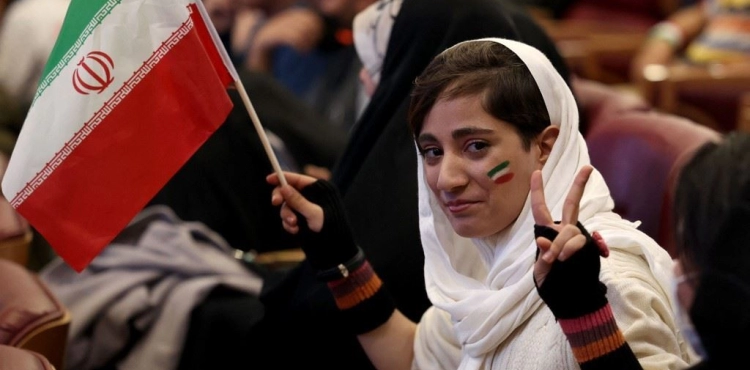A "trick" or a retreat from a religious imposition? Tehran´s decision to abolish the morality police received mixed reactions Sunday from Iranian Kurds and refugees in northern Iraq and Iranian religious visitors in the south.
While continuous protests have rocked the Islamic Republic for more than two months, Prosecutor General Mohammad Jaafar Montazeri announced Saturday evening the abolition of the morality police, according to the Iranian Student News Agency (ISNA).
This agency arrested the Iranian Kurdish Mahsa Amini, 22, on September 13 in Tehran for allegedly not respecting the strict dress code in the Islamic Republic that obliges women to wear the hijab in public.
Her death, three days after her arrest, sparked protests, and videos circulated on social media showing women leading the protest, removing their headscarves and burning them, chanting "women, life, freedom".
But Tehran´s announcement, which was interpreted as a gesture towards the demonstrators, angered Iranian Kurds who have been refugees in the Kurdistan region of Iraq (north) for decades, some of whom were forced to flee their country because of their opposition to the Iranian regime .
"The slogan of the demonstrators is not the solution to the morality police," confirms the saleswoman in a women´s shoe store, Nashmil Abdi. It is true that one of the demands is that compulsory veiling does not remain, but the real demand includes the removal of the system," she added.
For her part, journalist Soma Hakimzadeh, 32, believes that Iran is "using deception" with this measure.
And the activist in one of the Iranian Kurdish opposition parties, who was born in Iraqi Kurdistan after her parents fled Iran, added, "I think that women do not welcome this Iranian decision."
And the young woman added, "I hope that this decision does not affect the demonstrations."
The suppression of the demonstrations resulted in the arrest of about 14,000 people, according to the United Nations, and the Iranian authorities reported that more than 300 people were killed.
In the Shiite holy city of Najaf in southern Iraq, few Iranian pilgrims agree to talk about politics.
One of them, Waheed Sarabi, who comes from the city of Hamedan, says, “If we want to play the role of the morality police, then this should be with good words,” and that is so that “the issue does not go backwards and (people) hate religion.”
He adds, "In the branches of the Islamic religion, there is something called enjoining good and forbidding evil," and stresses the need for "the subject to be guiding and not compulsory. We cannot force anyone to beat and insult."
As for Younis Razavi (36 years), who comes from the city of Mashhad, he prefers to leave it to the "specialists" to talk about the morality police.
But at the same time, he appreciates that "there is a law respecting the veil in the Islamic Republic of Iran, and in my opinion all Iranian citizens must respect the law and respect the issue of the veil."
Division among Iranians in Iraq over the decision to abolish the morality police












